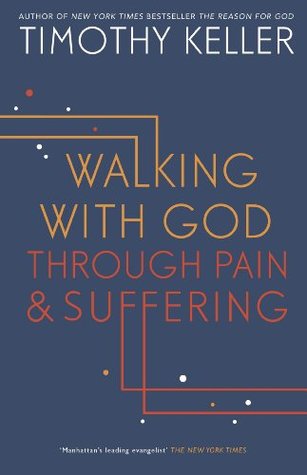More on this book
Community
Kindle Notes & Highlights
Read between
November 28, 2019 - February 6, 2020
“God whispers to us in our pleasures, speaks in our conscience, but shouts in our pain.”10
Suffering can refine us rather than destroy us because God himself walks with us in the fire.
Nothing is more important than to learn how to maintain a life of purpose in the midst of painful adversity.
Luther preached that there was nothing more important for a person than to see that he or she could contribute nothing whatsoever to one’s own salvation. We can be fully accepted and counted legally righteous in God’s sight through faith in Christ, solely by free grace.
The belief that we are saved by our virtue, the state of our hearts, or our good works injects a heavy layer of uncertainty and insecurity into our lives.
Only through weakness and pain did God save us and show us, in the deepest way possible, the infinite depths of his grace and love for us. For indeed, here was infinite wisdom—in one stroke, the just requirement of the law was fulfilled and the forgiveness of lawbreakers secured. In one moment, God’s love and justice were fully satisfied.
Suffering produces growth in us only when we understand Christ’s suffering and work on our behalf.
The “rage at the dying of the light” is our intuition that we were not meant for mortality, for the loss of love, or for the triumph of darkness.
It suggests that once human beings turned from God, there were only two alternatives, either immediate destruction or a path that led to redemption through great loss, grief, and pain, not only for human beings but for God himself. There is even a hint here that the future glory will be somehow even greater for all the suffering. Nevertheless, for the present, we live in the shadows.
Jesus comes to visit the family of his recently deceased friend Lazarus, in John 11. When he approaches the tomb, most translations say he was “once more deeply moved” or “he groaned in himself” (v. 38). But these translations are too weak. The Greek word used by the gospel writer John means “to bellow with anger.” It is a startling term. Theologian B. B. Warfield writes: “What John tells us, in point of fact, is that Jesus approached the grave of Lazarus in a state, not of uncontrollable grief, but of irrepressible anger.”223
God’s plan works through our choices, not around or despite them. Our choices have consequences, and we are never forced by God to do anything—we always do what we most want to do. God works out his will perfectly through our willing actions.
Don Carson concludes, “The God on whom we rely knows what suffering is all about, not merely in the way that God knows everything, but by experience.”
The glory of God also means his supreme importance. The Hebrew word for “glory” is kabod, which means “weight”—literally God’s weightiness. Fortunately, we have an English word that has the same lexical range and that functions in the same way—it is the word matter. Matter means “as opposed to the immaterial, something solid, something substantial,” but it can also mean “importance.” And therefore, when the Bible says that God is glorious, it means he should matter, and does matter, more than anything else or anyone else.
There is one more thing to say about God’s glory—it is his absolute splendor and beauty. The word for “glory” in the Old Testament means importance, the word for “glory” in the New Testament (the Greek word doxa) means “praise and wonder; luminosity, brilliance, or beauty.”
As we have seen already in this book, most of the central truths and themes of biblical theology can serve as very powerful comforts and resources to sufferers. But the more deeply you know and grasp those teachings before the adversity comes, the more comfort they will be.
The Bible says a great deal about suffering, but it is one thing to have these things stored in the “warehouse of the mind.”318 It is quite another to know how to apply them to your own heart, life, and experience in such a way that they produce wisdom, endurance, joy, self-knowledge, courage, and humility. It is one thing to believe in God but it is quite another thing to trust God.
when facing grief Christians must learn to direct their minds and hearts to the various forms of comfort and hope that their faith offers them.
God himself says in Isaiah 43 that he will be with us, walking beside us in the fire. Knowing him personally while in our affliction is the key to becoming stronger rather than weaker in it.
The grief and sorrow drive you more into God. It is just as when it gets colder outside, the temperature kicks the furnace higher through the thermostat. Similarly, the sorrow and the grief drive you into God and show you the resources you never had.
How wonderful that our God sees the grief and anger and questioning, and is still willing to say “you triumphed”—not because it was all fine, not because Job’s heart and motives were always right, but because Job’s doggedness in seeking the face and presence of God meant that the suffering did not drive him away from God but toward him.
There is no better place to wait for God than deep inside the Psalter.


